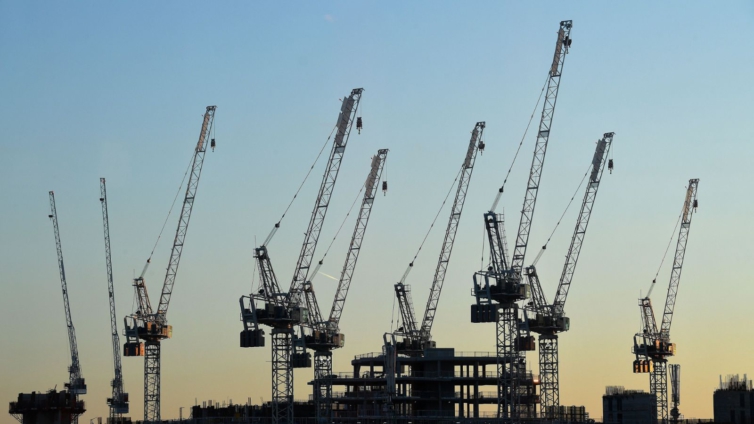The UK economy grew by a record 15.5% in the third quarter but remains 8.2% smaller than before the pandemic, official figures show.
Data from the Office for National Statistics (ONS) showed gross domestic product (GDP) bounced back strongly in the July-September period after the pandemic-driven recession in the first half of the year.
But hopes for a so-called "V-shaped recovery" have been dashed after rising coronavirus case numbers prompted the government to announce a second lockdown.
GDP is widely expected to go into reverse again in the final quarter of 2020 - though there are hopes that after that a new vaccine could see the economy return to pre-Covid levels more quickly than previously expected.
Chancellor Rishi Sunak, said: "Today's figures show that our economy was recovering over the summer, but started to slow going into autumn.
"The steps we've had to take since to halt the spread of the virus mean growth has likely slowed further since then.
"But there are reasons to be cautiously optimistic on the health side - including promising news on tests and vaccines.
"There are still hard times ahead, but we will continue to support people through this and ensure nobody is left without hope or opportunity."
Britain's third quarter growth figure was slightly short of expectations - economists had on average pencilled in expansion closer to 16%.
A monthly breakdown of the data also showed that the pace of recovery from the recession was slowing.
GDP grew by just 1.1% in September, a fifth consecutive month of increase but down from 2.2% in August and 6.3% in July.
It was 8.2% below its level in February and 9.7% down from the end of 2019.
Jonathan Athow, ONS deputy national statistician for economic statistics, said that all main sectors of the economy continued to recover in September.
"The return of children to school boosted activity in the education sector," Mr Athow said.
"Housebuilding also continued to recover, while business strengthened for lawyers and accountants after a poor August.
"However, pubs and restaurants saw less business, after the 'eat out to help out' scheme ended, and accommodation saw less business after a successful summer."
Latest Stories
-
PUWU hoists red flags nationwide over gov’t plan to privatize ECG and NEDCo
4 hours -
Kwame Yesu’s latest project blends raw emotion with rap precision
5 hours -
Court remands Mobile Money robbery suspect into police custody
6 hours -
BIDEC and Ghana Dance Association engages Ghana Tourism Authority on dance tourism
6 hours -
Ghana pushes forward with National AI policy through multi-stakeholder engagement
7 hours -
Mahama pays tribute to late Pope Francis
7 hours -
W/R police clamp down on crime: Suspects arrested for vehicle theft, gold robbery, galamsey
7 hours -
This Saturday on Newsfile: Chief Justice suspension and galamsey take centre stage
7 hours -
GIMPA GRASAG inaugurates study rooms, business centre to support academic work
7 hours -
Be circumspect with selection of new investors for Damang Mine – ACEP to government
7 hours -
Chieftaincy Institution in Ghana at a Crossroads – A Perspective by Andrews Kofi Anokye (KOANS)
9 hours -
Offinso highway robbery: Police mount hunt for killers of bus conductor
9 hours -
‘We will fish him out’ – DCOP Teye-Cudjoe vows to arrest soldier behind Nyinahin shooting
9 hours -
Traditional leaders laud AngloGold Ashanti’s youth dev’t initiatives in Obuasi
9 hours -
Cyra Pamela Koranteng resigns as Judicial Secretary, deputy elevated
9 hours

